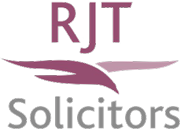What being an Executor of a Will involves
Do you know what it means to be the Executor of a Will?
Many of us are named as an Executor by a family member or a close friend, but what are your responsibilities?
What does an Executor do?
The person named in a Will as an Executor administers the estate in accordance with the wishes of the person who has died. If there is no Will, the person who administers the estate is called an Administrator. Their responsibilities include arranging the funeral; identifying the assets and liabilities of the estate; collecting the assets; paying any debts and liabilities from the estate and distributing what is left according to the terms of the Will, or the Rules of Intestacy if there is no Will.
What is a grant of probate or letters of administration?
This is a document issued by a court that confirms the authority of the Executor or the Administrator to administer the estate.
How do you get it?
You value the assets and liabilities of the estate and then file an account with HMRC. Included will be things like joint property; interests in trusts and lifetime gifts made in the last 7 years. If there is any inheritance tax (IHT) to pay, a proportion may have to be paid before you can receive the grant.
Who pays that?
If the deceased had funds in a bank account, those monies will usually be released for this purpose. As well as filing the account with the HMRC, the Executor has to swear an affidavit (an oath) in support of the application and file this with the Probate Registry along with the original Will if there is one and a receipt from HMRC confirming that the tax has been paid.
Will I be personally responsible for the deceased’s debts?
As an Executor you do not pay out of your own money; the money is paid out of the deceased’s estate. However, there can sometimes be a delay between the death and getting the grant of probate when the funds can be released so the payment of some debts can be delayed. Some assets can be realised before probate or without a grant, for example, life insurance policies that are payable direct to a beneficiary or if there is only a small amount in a bank account. As referred to above, some banks may be prepared to release funds to pay IHT before the grant is obtained. If the Executor is also a beneficiary, they may be prepared to use their own money to pay debts or may be prepared to lend money. They will, however, not have any personal liability unless they are negligent or fraudulent in dealing with the estate.
How long is the process?
It may take only a few months if there are relatively few assets and no IHT to be paid. However, in more complex estates it can take years to sort out the estate.
What can you do to make the job easier for your Executors?
Give careful consideration to who you appoint as your Executors. If you choose more than one, (probate cannot be granted to more than four) make sure that they can work together. If you have a business, will they be able to make relevant decisions and will they have the time to deal with this. It is a good idea to leave a log of your assets so that they can be easily found. It is sensible to tell your Executor of your intentions and where the original Will is stored.
Can an Executor also be a beneficiary of the Will?
Yes but a person who witnesses the signing of the Will cannot be a beneficiary under that Will. The person you appoint as your Executor must be aged 18 or above.








